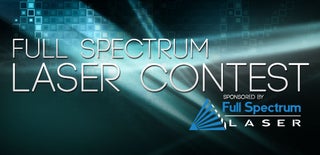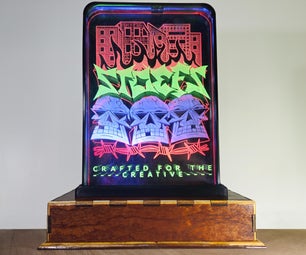Introduction: Tower Led
Step 1: What We Need
1 Threaded Rod
10 Leds (20 for beter result)
1 capacitor 63V 10uF
2 resistors 10k
IC LM3914N
acrylic sheet 8mm
acrylic sheet 4mm (option for the for the box that contains the circuit)
2k pot
50k pot
100k resistor (option. The resistance value can change it depend on your stereo)
2 diode zener
veroboard
wire
Other material:
hot glue
pliers long nose
30 nut for the Threaded Rod (on my project)
Drill
sander p100 (for the edge)
Step 2: Schematic
5k for 1.5v
85k for 9v
110k for 12v
Attachments
Step 3: Cut Acrylic and Wood and Drill It
You can cut the acrylique with a saw or electric saw (not fast you can melt acrylic). drill the acrylique,use drill 5mm for the LEDs and make a hole around 0.5 to 1 cm.
cut your wood to make a stable base to hold the tower. for my project I use a wood 15 cm by 25 cm and 3cm thick
the hardest time, drill the holes for the rod. holes must be in the same place on all acrylic sheets
Step 4: Finiching and Result :)
welding the anodes of the LEDs to have a common positive wire
connect all led to the board.
remember: led 10 is connected on pin 1 and the first led is connected on pin 10

Participated in the
Full Spectrum Laser Contest

Participated in the
123D Circuits Contest













